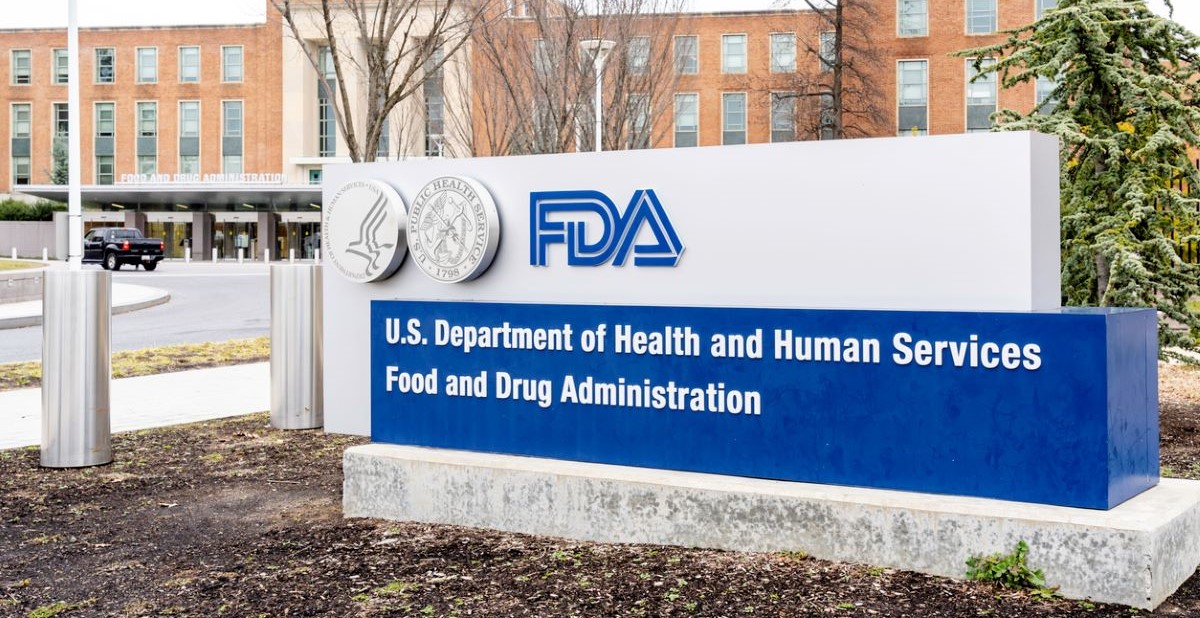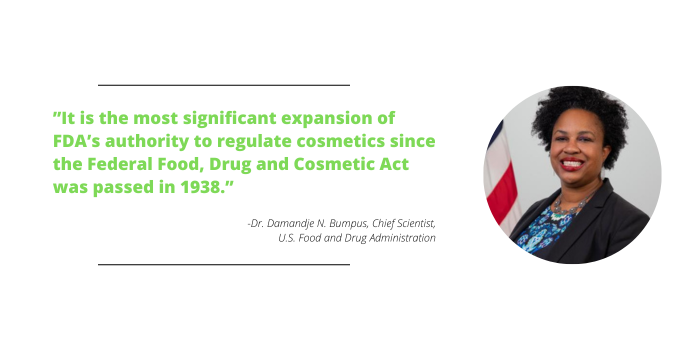FDA’s New Cosmetics Regulations Mean Major Changes in 2024. Are You Prepared?

In 2022 the FDA passed the Modernization of Cosmetics Regulation Act (MoCRA).
The new law is meant to help ensure the safety of cosmetic products that are used – often daily – by consumers. It will mean large-scale changes in terms of what is required of promo companies, and it’s not just suppliers who have new requirements; many distributors will have to adhere to specific guidelines or face potential consequences.
- Some of MoCRA’s new requirements must be met by the end of 2023.
- These significant changes will be discussed at PPAI’s Product Responsibility Summit October 8-10.
“It's important that distributors and suppliers partner early on to discuss these changes and create a plan,” says Kate Nash, director of sales and marketing at Raining Rose, a supplier that has been preparing for the enforcement of MoCRA since it passed in December 2022.
“It is the most significant expansion of FDA’s authority to regulate cosmetics since the Federal Food, Drug and Cosmetic Act was passed in 1938,” says Dr. Damandje N. Bumpus, chief scientist at the U.S. Food and Drug Administration.
The Requirement Changes
There are a handful of requirement changes that promo companies working with cosmetics will have to be ready to adhere to.
1. Cosmetic products must include a label with contact information.
- The label must include a domestic address, domestic phone number, website or email for consumers to report adverse events related to the product.
- The FDA will release a list of fragrance allergens, and labels will be required to identify any such allergens present in the product.
- Whether manufacturer or distributor, the company present on the label must be prepared to keep their contact information up to date on its label.
- These requirements will go into effect at the end of 2024.
- The company or name who is listed on a cosmetic product’s label is considered the “responsible person.”
2. Reporting adverse side effects to the FDA.
- This applies to the manufacturer and the distributor if listed on the label of the product.
- The adverse event must be reported to the FDA within 15 business days of the company receiving the initial report.
3. Provide proof that your cosmetic product is safe.
- Manufacturers and distributors, if listed on the label, will have to provide this proof.
- Possible examples could include tests, studies, research or other scientific evidence.
- Distributors might consider asking their manufacturers to provide these necessary items, as they may already have obtained such proof.

- Voluntarily recall products that pose risk.
- If the FDA has “reasonable belief” that a cosmetic product is adulterated, misbranded or presents a risk of serious adverse health consequences, the responsible person will have the opportunity to voluntarily cease distribution of the product.
- The FDA has the authority to issue a mandatory recall if the responsible person refuses to do so voluntarily.
- Manufacturers must register as a Cosmetics Facility with the FDA.
- Any manufacturer of cosmetics will have to register as a Cosmetics Facility by the end of 2023.
- This registration must be renewed biannually.
- Included in this registration will be Good Manufacturing Practices (GMPs) that the FDA will establish before enactment. Adhering to these practices will be required for registration.
- These registrations will not apply to distributors.
- Cosmetic products must be registered with the FDA.
- This applies to the manufacturer.
- This also applies to the distributor if it has annual cosmetic sales above $1 million and/or is listed on the label as “distributed by.”
- This will be required by the end of 2023.
- Products must be reregistered biannually.
In order to accommodate the number of registrations that are incoming (requirements 5 and 6 above), the FDA will be creating a portal for companies to access.
“Because MoCRA requires certain companies to register their facilities and list their products with FDA, FDA is creating a new system to handle the large number of submissions that will result,” says Linda Katz, director of the office of cosmetics and colors at FDA.
Find more details about MoCRA at the FDA’s website.
How Should You Prepare?
Any promo company for which the MoCRA requirements apply to that has not started preparing to be able to meet these expectations should start now.
“MoCRA was announced in December 2022, and we have been in planning and internal discussions since then,” says Rachel Cron, quality manager at Raining Rose, which employs team members responsible for making sure the supplier is up to date with regulatory changes.
With questions surrounding registration portals still unanswered in some cases, the burden will be on the suppliers and distributors to be vigilant in attending FDA public forums, approaching FDA representatives with questions and generally seeking out new information that FDA releases.

Nash points out that the labeling and registration process will potentially require more from Raining Rose’s distributor partners.
“A huge change for our industry will be how the FDA looks at who is responsible for a product’s labeling, safety and more,” Nash says. “MoCRA represents a new shared responsibility between manufacturer and distributor that didn’t exist before for cosmetics. It’s common in our industry for a distributor to be listed on a label as ‘Distributed by.’ With MoCRA, the company listed on the cosmetic label is now responsible for registering a product, having systems in place to report adverse effects, having documentation on the product’s safety and being prepared for recalls if one should occur – whether or not they are the manufacturer.”
- This new shared responsibility could be seen as an opportunity for further collaboration. Suppliers would benefit from providing their distributor partners with relevant information or analysis, and both parties shouldn’t hesitate to remind their partners of requirements in the first few years of enforcement.
In the big picture, these requirements are about consumer safety, which is a must for the growth of any sector.
“It’s easy to get frustrated about additional red tape that comes along with regulations like these,” says Nash. “But it’s important to remember: The FDA is trying to make sure that consumers have information they need about the safety and integrity of their cosmetics products, which is a valuable objective.
Her colleague Cron adds, however, that it is a lot to ask of companies and hopes that the FDA acts as a partner with these companies in ensuring that they are in position to meet the requirements.
“Given the important role that small businesses play in the promotional space, we hope to see some additional flexibility and support from the FDA to implement these changes,” Cron says.

